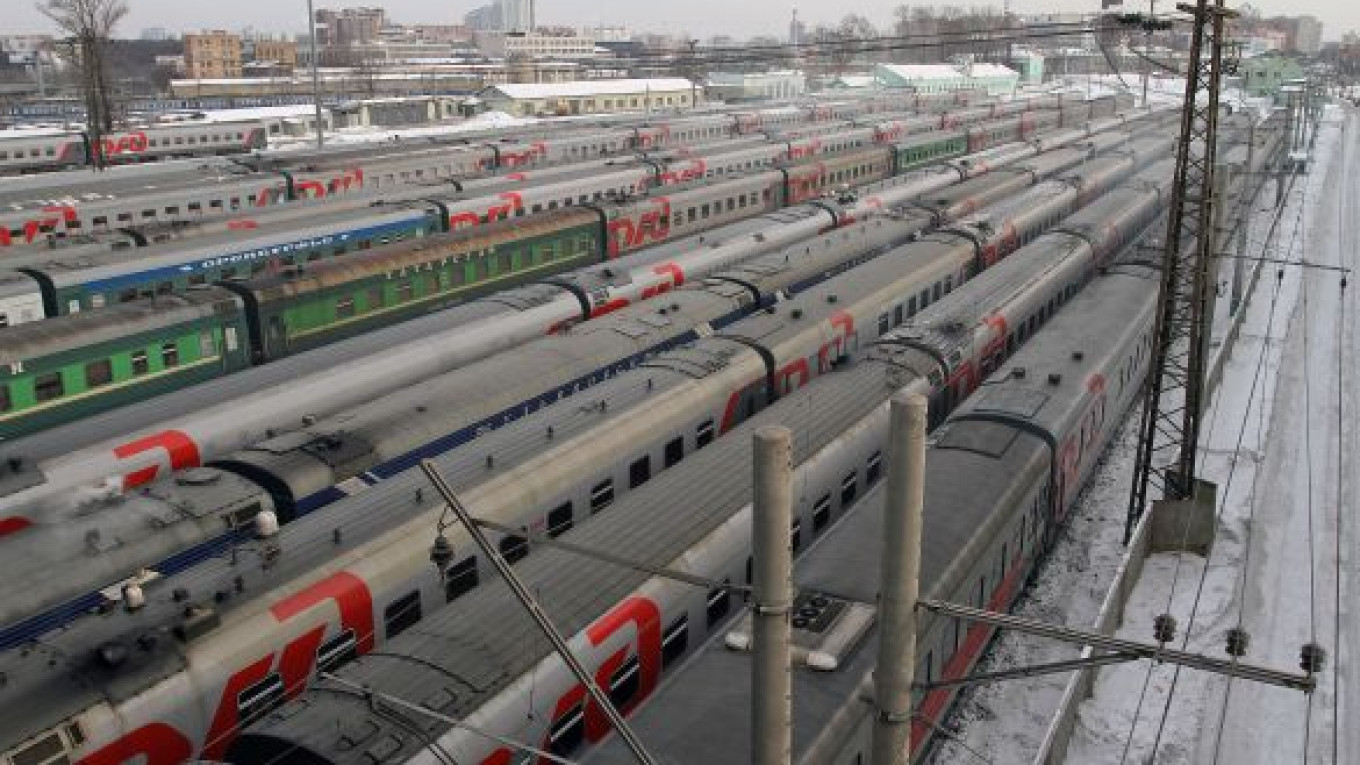SOCHI — Russian Railways signed an agreement to buy 1,200 electric rail cars worth $2.98 billion from Siemens and billionaire Dmitry Pumpyansky's Sinara Group on Wednesday.
The passenger cars will be supplied as five-wagon trains worth $8.6 million each, according to documents distributed ahead of the signing ceremony.
The deal, signed by Russian Railways president Vladimir Yakunin, Mobility Division chief executive and Siemens vice president Hans-Jörg Grundmann and Sinara Group owner Dmitry Pumpyansky, was one of several signed by the monopoly and its subsidiaries at the sixth international rail business forum hosted by Russian Railways in Sochi.
Under a localization clause, the trains — which are destined for use on regional routes — will mostly be produced at the Ural Locomotives plant near Yekaterinburg. By 2017 the trains should be 80 percent locally produced, Grundmann told The Moscow Times on the sidelines of the conference.
"We're investing about 200 million euros [$288 million] in this," he said. "The demand for rolling stock in this country is very high, and for us it is very important to localize. Otherwise customers are too dependent on other countries and that is just not possible," he said.
Siemens is already in the process of delivering some 56 passenger trains to Russian Railways under agreements signed in 2009 and 2010. It sealed a deal for 221 freight trains at last year's conference.
Yakunin also signed a deal with Transmash Holding for 200 electric locomotives. Transmash holding chairman Andrei Bokharev said the deal was worth something above $1 billion.
The locomotives — to be delivered by 2020 — are being designed in Novocherkassk, Rostov region, at TRTrans, a joint engineering center between Transmashholding and France's Alstom.
Representatives of more than 30 countries are attending this year's international rail forum, an annual event that Russian Railways has hosted in the Black Sea resort since 2005.
The rail monopoly is omnipresent in Sochi. Large swathes of the city have been turned into construction sites, while Russian Railways lays new lines to the airport and the mountain resort of Krasnaya Polyana, and builds a new rail terminal ahead of the 2014 Winter Olympics.
This year's conference is highlighting calls to deepen cross-border cooperation to facilitate an East-West freight corridor in competition with road and sea routes.
Seventeen countries, including the Bulgaria, Finland, the Baltic nations and the Commonwealth of Independent States, use the wider 1,520 millimeter gauge track that was used by the Russian empire in the 1870s, while the rest of Europe uses the narrower 1,435 millimeter gauge.
Prime Minister Vladimir Putin may meet rail chiefs from the 1,520 gauge countries in a bid to promote cooperation, Yakunin said as he opened the conference. He gave no date for the meeting.
In April 2010, Russian Railways unveiled a project to bring the 1,520 gauge into Central Europe by extending a line through Slovakia and Ukraine to Vienna's rail hub.
A Message from The Moscow Times:
Dear readers,
We are facing unprecedented challenges. Russia's Prosecutor General's Office has designated The Moscow Times as an "undesirable" organization, criminalizing our work and putting our staff at risk of prosecution. This follows our earlier unjust labeling as a "foreign agent."
These actions are direct attempts to silence independent journalism in Russia. The authorities claim our work "discredits the decisions of the Russian leadership." We see things differently: we strive to provide accurate, unbiased reporting on Russia.
We, the journalists of The Moscow Times, refuse to be silenced. But to continue our work, we need your help.
Your support, no matter how small, makes a world of difference. If you can, please support us monthly starting from just $2. It's quick to set up, and every contribution makes a significant impact.
By supporting The Moscow Times, you're defending open, independent journalism in the face of repression. Thank you for standing with us.
Remind me later.


